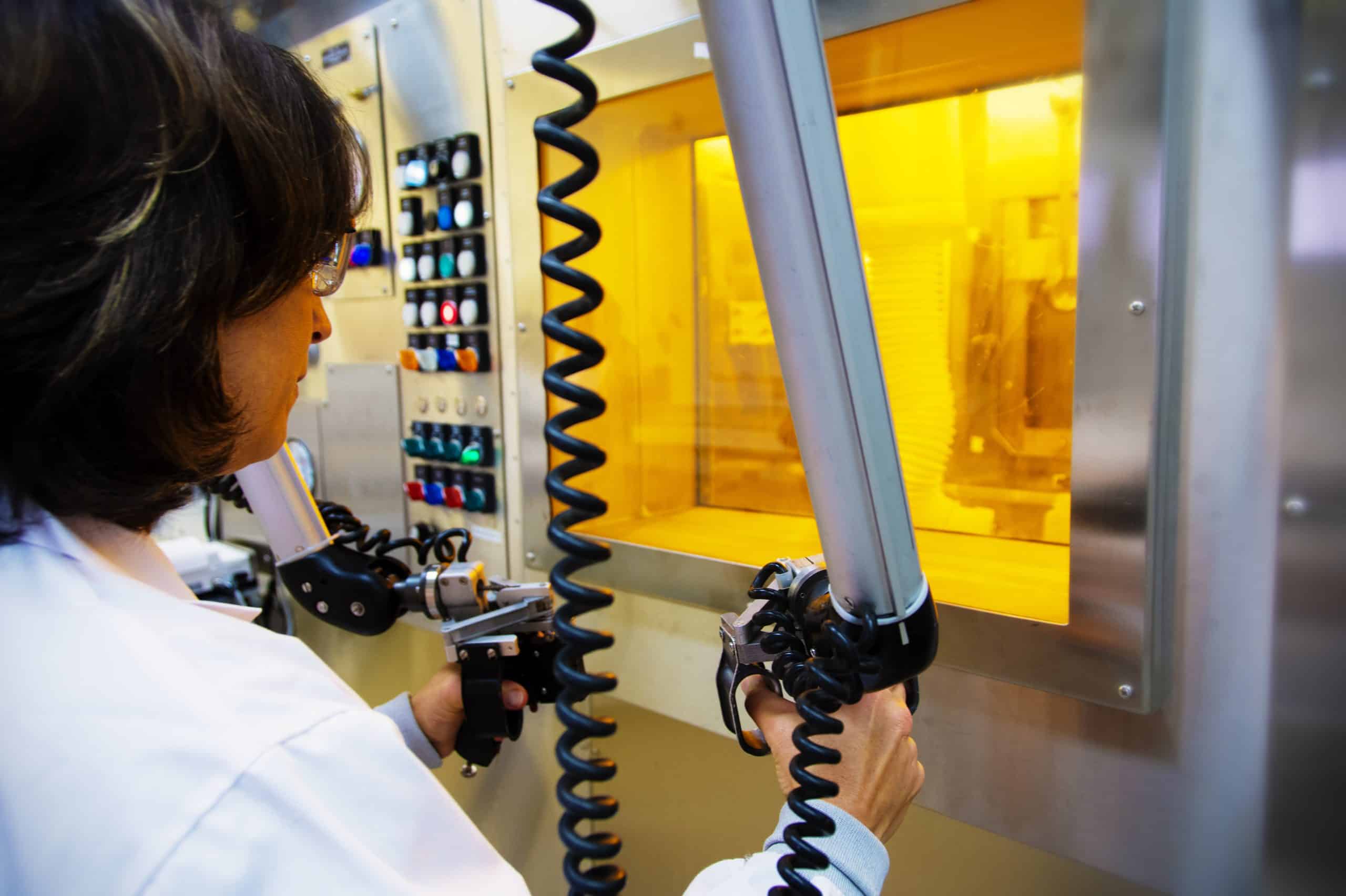Darlington nuclear plant in Clarington now able to produce Mo-99 medical isotopes
Published February 1, 2023 at 10:30 am

With the installation of an innovative isotype system at Darlington Nuclear Generating Station, life-saving medical isotopes can now be produced in Clarington, continuing a decades-long tradition started at the Pickering nuclear plant.
Then Pickering plant has been harvesting Cobalt-60 for many years, with the isotope loaded into flasks and shipped to a health-sciences company in Ottawa, where it is manufactured into a finished product and shipped for use around the world.
The isotope extracted from a single Pickering reactor – harvested every 24 to 30 months – can yield enough Co-60 to sterilize approximately 3.5 billion syringes per harvest. About half the world’s Cobalt-60, used in medical radiotherapy and in sterilizing single-use medical devices, such as syringes, gloves, implants, and surgical instruments, comes from Ontario nuclear plants.
Now, with the Pickering plant’s future beyond 2026 unclear, Darlington has stepped in with operator Ontario Power Generation commissioning the installation of the new system by Laurentis Energy Partners and BWXT Medical Ltd. that will produce Molybdenum-99 (Mo-99) isotopes.
Mo-99 is used to produce Technetium-99 metastable (Tc-99m), one of the most prevalent diagnostic imaging agents in nuclear medicine, helping to detect illnesses like cancer and heart disease.
“This is an exciting milestone for all companies involved, but most importantly, for patients in need,” said Ken Hartwick, OPG’s President and CEO. “Ontario’s nuclear generating stations have demonstrated for decades their value extends beyond producing reliable, affordable, clean energy. I’m proud of the role our employees and stations play in providing life-saving medical isotopes to the world.”
Because of the unique design of Darlington’s CANDU reactors, medical isotopes can be produced without interrupting the generation of clean energy and the production of Mo-99 at Darlington will be a world-first for a commercial power reactor.
“Tc-99m is the workhorse isotope for nuclear medicine,” said Dr. David Laidley, Nuclear Medicine Physician at London Health Sciences Centre. “Used in over 80 per cent of all nuclear medicine procedures, the availability of this critical isotope will save countless lives.”
With all the necessary equipment in place, the team at Darlington will continue with commissioning and preparation for commercial production of the isotope, pending completion of validation runs and approval from the U.S. Food and Drug Administration and Health Canada.
It will then be delivered to radio-pharmacies and hospitals across North America to make radio-pharmaceuticals for patients, a production break-through that will help resolve historical shortages of the product. North America has not had a stable domestic supply of Mo-99 since Canada’s National Research Universal reactor ceased production in October 2016. Hospitals have had to rely on imports from Europe, Africa, and Australia.
Once operational, the arrangement between Laurentis and BWXT Medical will be capable of producing enough Mo-99 to supply a significant portion of the current and future North American demand.
“Ontario is leading the way on the production of medical isotopes, leveraging our world-class nuclear generation stations and supply chain,” said Todd Smith, Ontario’s Minister of Energy. “Production of Molybdenum-99 at Ontario’s Darlington Nuclear Generating Station, a world-first for a commercial power reactor, will create a steady global supply of radio-pharmaceuticals which help our healthcare system detect illnesses like cancer and heart disease.”
Historically, Mo-99 has been produced within research reactors using uranium as a starting material. But BWXT Medical’s Tc-99m generator will be produced using natural molybdenum targets irradiated at Darlington Nuclear, greatly reducing waste by-products.
In the future, the newly installed system may be used to produce other medical isotopes. Darlington currently produces Helium-3 and Tritium, with plans underway to produce Cobalt-60 – the same material now extracted from the reactors at Pickering.
Dr. Jonathan Cirtain, the President and CEO at BWXT Medical Ltd., said completing the installation of the system was a “significant milestone” for the Laurentis and BWXT team. “This partnership leverages Darlington’s industry-leading operational reliability, the expertise of Laurentis and OPG to provide irradiation services, and BWXT’s proprietary neutron capture process and innovative production technology. It has been a collaborative and industry-leading effort.”
To see a video on how Mo-99 is produced, check out https://www.youtube.com/watch?v=S-pCcy8LqRA
insauga's Editorial Standards and Policies advertising





